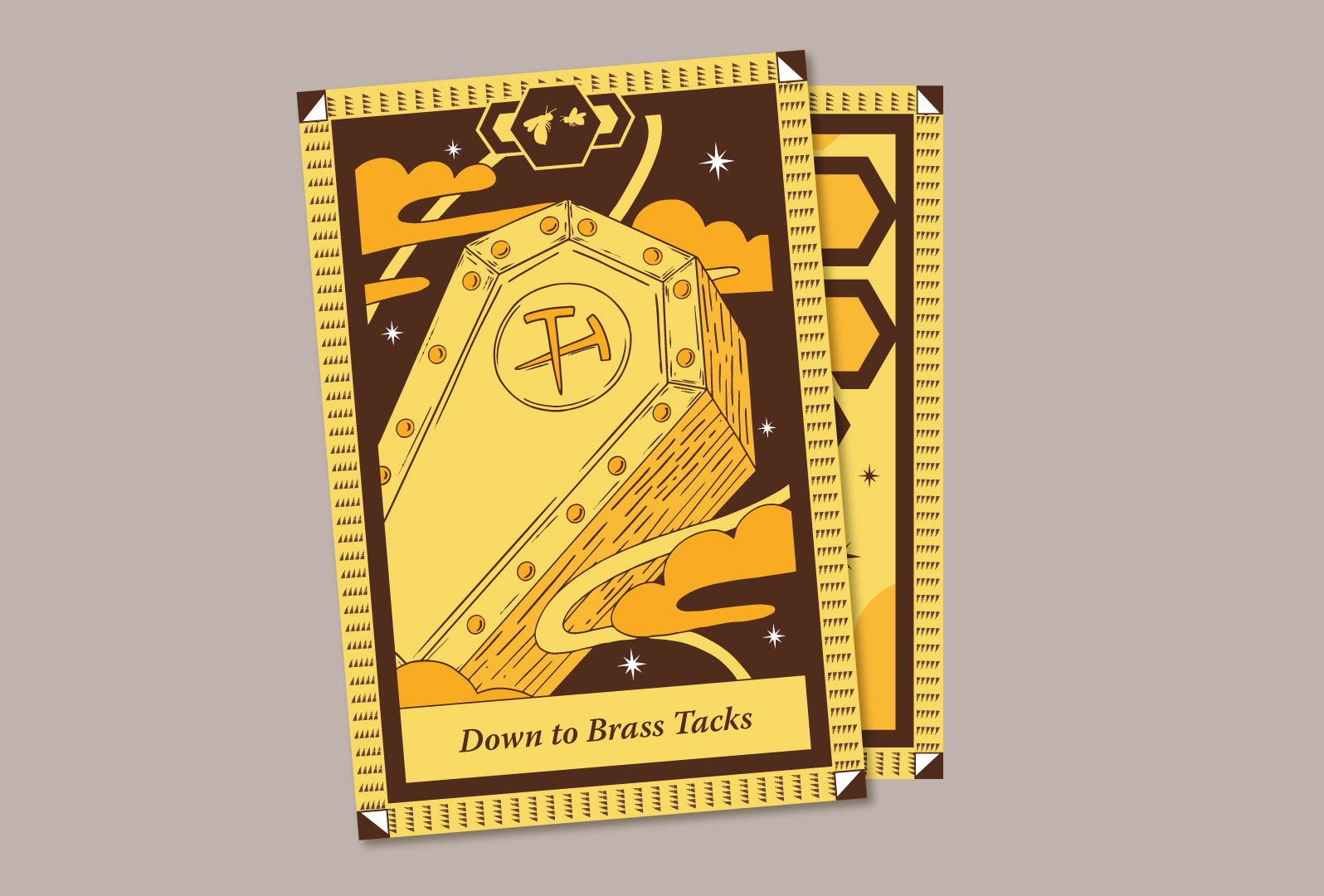Gonna Get It Right This Time: Commonly Misheard & Misspoken Phrases

Language is a confusing, ever-changing beast, and when your primary language is one as ridiculous as English, things can get complicated. Whether you’ve been speaking English your whole life, or you learned it later, there’s a pretty good chance you have misheard and misspoken a phrase. Though I’d love to deny it, I’ve had my fair share of mix-ups when it comes to using sayings correctly.
Instead of us all being clueless or judging others’ mistakes, I wanted to gather some of the misused phrases I hear the most, so we can all get them right going forward—or not—it’s all a construct anyway.

1. One fell swoop
- Meaning: all at one time
I hear this one as “one fail swoop” and “one full swoop” on a regular basis, which is very understandable. We talk quickly and fell, fail and full all sound very similar.
The first time this term was used was in Shakespeare’s Macbeth. Good Ole Willy boy is comparing the murder of Macduff’s wife and children to a hawk flying in on its prey. Apparently, much like some of our other favorite Shakespeare quotes, it has been commonly used in a way that differs from what it meant when it was written (“Wherefore art thou Romeo,” is not asking where he is…). In those times, “fell” meant cruel or ruthless, whereas now we typically use it to mean sudden or all at once. Whether sudden or ruthless, the hawk surely caught his prey, so no “fail” to be had here.

2. Down to the brass tacks
- Meaning: the most fundamental considerations; essentials; realities
This one sounds the same when said aloud but is commonly miswritten as “brass tax.” Though it is usually used the same way these days to mean getting down to the nitty-gritty, there are many different theories behind its origin. Some say that it comes from the furniture industry, as brass-headed tacks were commonly used during the Tudor period and would be removed before reupholstering was done.
Another theory claims that it comes from the haberdashery industry and that brass tacks were used to measure the yardage of fabrics more accurately. One theory with an American origin claims that it refers to the nails used in a coffin and one writer in 1868 even said it meant “coming down to the serious business…of death.”
Whatever the origin, it seems to have nothing to do with regular payments to the state, so we can leave “tax” out of the equation.

3. Nip it in the bud
- Meaning: suppress or destroy something at an early stage
This one is one of the phrases I feel like I’ve heard used more incorrectly than correctly. People usually say, “nip it in the butt,” which sounds legit but implies more of an annoyance, like a bee sting, than what the original usage referenced. The first recorded use of this phrase was in a Beaumont and Fletcher play from 1606-1607. They were talking about the spring frost that can kill buds before they even turn into flowers—bringing their demise before they can grow full-size—which is how the phrase is often still used today.
So, let’s get our minds out of the gutter and into the garden!

4. To/for all intents and purposes
- Meaning: in all important respects
Because of how the phrase sounds when spoken aloud, this one is commonly misheard as “for all intensive purposes.” The term may also cause confusion because of its legalese; if you have never studied law, it may sound like hullabaloo. The phrase originally came from an Act of the British Parliament in 1546, giving King Henry VIII the power to interpret laws in any way he wished, which read “…to all intents, constructions, and purposes….”
The King did not care whether the laws were intense, but instead if he could decide what they intended.

5. Foolproof
- Meaning: certain to succeed in all eventualities, safe against the incompetence of a fool
Like the first example, I hear this one said as “full proof,” which is understandable but doesn’t exactly make any sense. Ensuring something cannot be full? Unless we’re talking about having a salad for a meal, I’m not sure when you would use that word.
The internet doesn’t have a clear origin of the term, but it is essentially the original way to say “idiot-proof.” Think Geico’s “it’s so easy a caveman could do it.” It’s so straightforward; even a fool couldn’t mess it up.

6. Due diligence
- Meaning: reasonable steps taken by a person to satisfy a legal requirement, especially in buying or selling something
This is another example of when legalese leaks into everyday speak, and the wording gets a little jumbled. Because of how it sounds when spoken, many people assume the phrase is “do diligence.” It is actually referring to the special care given to something that needs it. The diligence is ‘due’ because it is expected or necessary—like, “I hope you did your due diligence before applying for loan, or you’re never going to get it.”
Hopefully this taught you something new, cleared something up or was a little review for you. Now we’re all geniuses and can go on to win Jeopardy or whatever. “Let’s do, ‘commonly misheard and misspoken phrases’ for 800!”
Sources:
Dictionary.com
Grammarist.com
https://grammarist.com/usage/get-down-to-brass-tacks/
Oxford Languages
Punny or Not: Your Dad Joke Survival List
The Fear of Color
The Best Way to Create Information Architecture








